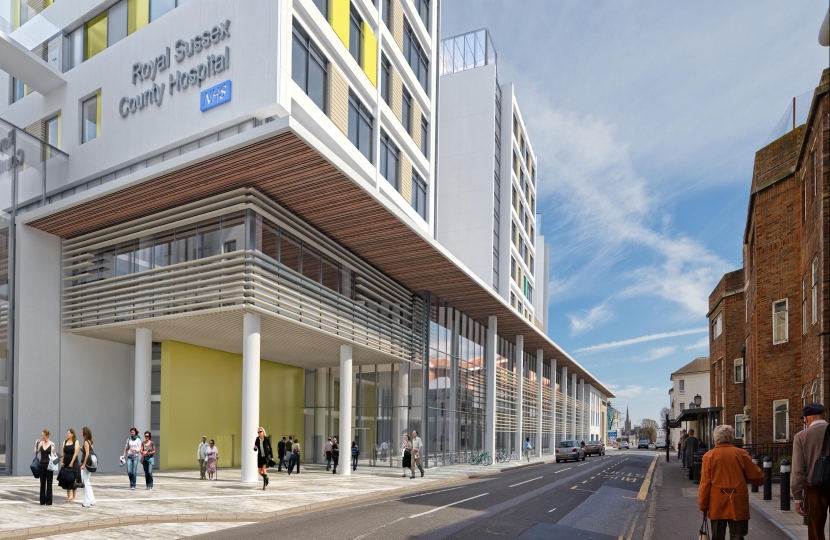
On 3rd April the Health Secretary announced that the £13.4bn debt owed by the National Health Service would be written off. But what does that mean in practice, and for hospitals in Brighton & Hove?
Brighton and Sussex University Hospitals (BSUH) have a total debt of £293,485,000, the highest in the Southeast. BSUH includes Royal Sussex County Hospital, Princess Royal Hospital, Royal Alexandra Children’s Hospital, and the Sussex Eye Hospital.
This debt will be transformed into equity, or what is known as Public Dividend Capital (PDC). PDC requires the Department of Health make a return on its assets of 3.5%. These assets include NHS Trusts. So essentially, the Government becomes a shareholder in the NHS, instead of hospitals owing money to the government.
It is true that interest paid on debt is usually between 1.5% and 3.5%, and it has been reported trusts in special measures were paying more.
But the government has said that the 3.5% PDC requires will be reviewed to help ensure no Trust is disadvantaged.
Funding is complex, but essentially, the funding change means that BSUH current debt interest payments, which probably alone equate to an annual interest payment of over £4.4m per year, should now no longer need to be paid, and the £293m is cancelled.
So hospitals will have fewer immediate money worries, and this may help reduce workforce shortages, as trusts were reliant on short-term loans from the Department of Health.
Longer term, it may also mean there is less internal competition between hospitals, as reducing debt was one of the criteria the government used to measure hospital performance.
What it will definitely mean is a genuine conversation on how best to fund the NHS for the foreseeable future.
So along with the £400 million modernisation of the Royal Sussex County Hospital, the £30 million redevelopment of the Royal Sussex County Hospital’s A&E department, the increased injection of cash to help hospitals cope with the coronavirus pandemic, the continuing improvement in BSUH management, BSUH will have fewer long-term money worries - a whole host of reasons for the public to have increased confidence in Brighton’s local hospitals.
The public also have one less worry – the future of the NHS is safe, as it unquestionably always has been.
The Conservatives, running the NHS for 44 of its 71 years, have ensured that by changing its funding, and securing its financial future, at a time of otherwise deep economic uncertainty, the NHS will continue to remain the government’s favourite topic of conversation.
Funding of hospitals is difficult and complex, and there will undoubtedly be difficult discussions to be had about funding other areas of the economy. But Labour and Green councillors should remember that while it is right to scrutinise the government, it is irrefutable that it is Conservative governments that most voters have decided to trust with looking after the NHS, and it is a Conservative government that didn’t have to think about supporting the NHS at a very early stage of the current crisis. They should ask themselves why, instead of endlessly raising the straw man argument of privatisation.
A Conservative Prime Minister, whose very life was saved by the NHS, is not going to let its heroes be forgotten.
ENDS.



